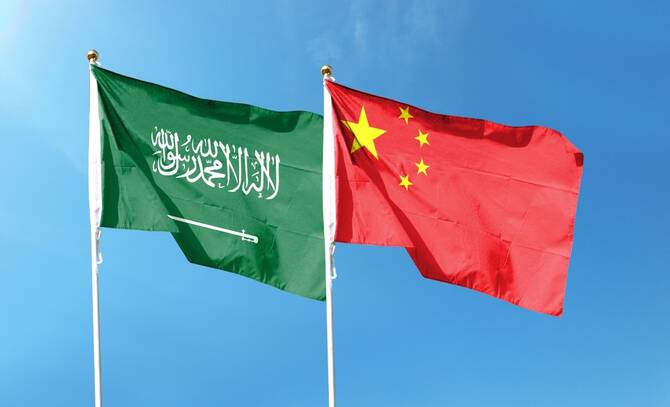
- ARAB NEWS
- 17 Aug 2025

JEDDAH: Saudi Arabia is pushing to expand food exports to China and attract agricultural investment with a ministerial visit that aims to deepen bilateral trade and boost non-oil economic cooperation.
Minister of Environment, Water and Agriculture Abdulrahman bin Abdulmohsen Al-Fadley has begun an official visit to China, heading a high-level delegation to enhance bilateral cooperation in the fields of environment, water, and food production.
Saudi Arabia’s non-oil exports to China soared to SR3.68 billion ($980 million) in December, representing a 69.6 percent increase from the previous month, according to recent data from the General Authority for Statistics.
The SPA report said the minister’s visit “forms part of broader efforts to deepen Saudi-Chinese relations, attract strategic investments to the Kingdom, and explore mutual opportunities in the environment, water, agriculture, and livestock production sectors.”
Al-Fadley is scheduled to meet with Chinese ministers, senior officials, and leaders of major companies operating in key sectors.
The discussions will focus on exploring future partnership opportunities, transferring advanced technologies, and opening new opportunities in the Saudi market.
Al-Fadley will also participate in the Saudi-Chinese Forum on exporting Saudi products and sustaining the agricultural sector. The forum will bring together senior government and private sector representatives from both countries, including more than 80 Saudi businesspeople and investors.
GASTAT figures showed that in December, plastic and rubber products led Saudi exports to China with a value of SR1.12 billion, followed by chemical goods at SR1.11 billion and transport equipment at SR1.02 billion.
The Kingdom’s non-oil shipments to China stood at SR2.17 billion in November, SR2.35 billion in October, and SR1.73 billion in September, reflecting a steady upward trend.
This sustained growth highlights the deepening economic ties between Riyadh and Beijing, with Saudi Arabia maintaining its role as China’s top trading partner in the Middle East since 2001.
The increase in non-oil exports also signals tangible progress in the Kingdom’s economic diversification efforts, as it works to reduce its longstanding dependence on oil revenues.